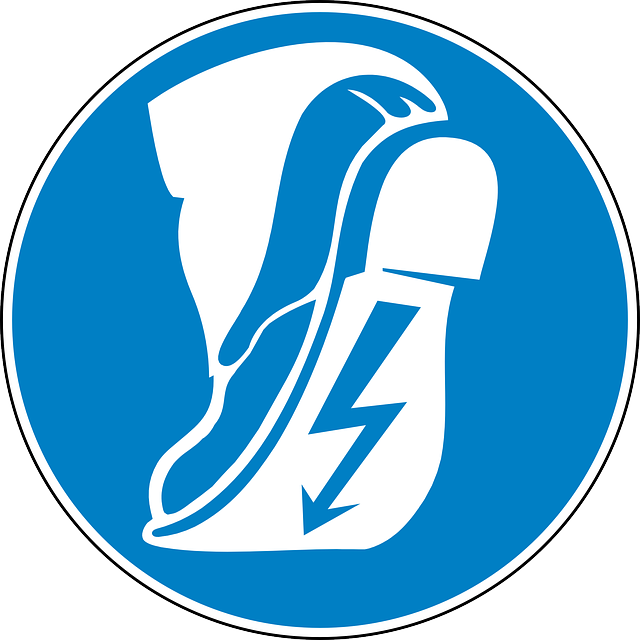Retail sectors face unique challenges in employee screening due to high-pressure environments involving cash and valuable inventory. Robust background checks are essential to prevent theft, fraud, and inappropriate behavior, addressing gaps in traditional methods. Comprehensive screening procedures, including criminal history reviews, employment verifications, and reference checks, minimize risks, protect businesses, and foster trust. These measures prioritize customer safety, enhance operational integrity, and ensure retail industry compliance, thereby reducing theft and improving shopping experiences.
The retail sector faces unique challenges in employee screening due to high turnover rates and constant interaction with customers. Effective retail employee screening is essential for enhancing customer safety, reducing retail theft, and ensuring operational integrity. This article delves into the key components of comprehensive background checks for retail employees, strategies to prevent theft, and best practices for implementing robust retail staff credential verification in today’s competitive market. Explore how these measures contribute to retail industry compliance and improved customer experiences.
- Understanding the Unique Challenges of Retail Employee Screening
- The Role of Background Checks in Enhancing Customer Safety
- Key Components of Effective Retail Staff Credential Verification
- Preventing Retail Theft: Strategies and Tools for Compliance
- Best Practices for Implementing Comprehensive Retail Employee Integrity Checks
Understanding the Unique Challenges of Retail Employee Screening

The retail sector presents unique challenges when it comes to employee screening due to the dynamic and often high-pressure environment. Unlike more static roles, retail employees interact directly with customers daily, handling cash, valuable inventory, and providing essential customer service. This increases the risk of theft, fraud, or inappropriate behavior that requires thorough background checks for retail employee integrity. Traditional methods may not always catch potential issues, such as previous shoplifting charges now considered expunged, or false identities used to bypass conventional screening processes, emphasizing the need for robust retail background verification systems.
Retail stores must also adhere to stringent industry compliance standards regarding customer safety checks and staff credentials. Implementing comprehensive screening procedures is vital to prevent retail theft and ensure a secure shopping experience for customers. By employing advanced background check technologies, retailers can minimize risks, protect their businesses, and maintain the trust of their clientele, ultimately fostering a welcoming and safe environment for both employees and shoppers alike.
The Role of Background Checks in Enhancing Customer Safety

In the dynamic landscape of retail, where consumer trust is paramount, implementing robust background checks for retail employee integrity is no longer a best practice—it’s an imperative. Retail background verification plays a pivotal role in ensuring customer safety checks and maintaining industry compliance. By delving into the staff credentials and history, retailers can mitigate potential risks and prevent incidents that could harm both customers and the business reputation.
Retail theft prevention is a significant concern, with sophisticated methods employed by unscrupulous individuals to evade traditional security measures. Comprehensive background screenings can uncover prior instances of dishonesty or criminal behavior, allowing retailers to make informed decisions about hiring. This proactive approach not only safeguards shoppers but also fosters a culture of trust and transparency within the retail environment, ensuring a positive experience for folks navigating the bustling stores.
Key Components of Effective Retail Staff Credential Verification

In the dynamic retail sector, ensuring customer safety and maintaining operational integrity is paramount. Effective retail employee screening plays a pivotal role in achieving these goals by verifying staff credentials and uncovering potential risks. Key components of successful background checks include comprehensive criminal history reviews, verifying employment veracity, checking references, and assessing personal integrity through detailed questionnaires. These measures help identify individuals with a history of theft, violence, or dishonesty, safeguarding both customers and the business from harm.
Retail industry compliance demands rigorous customer safety checks that go beyond basic verification. Retail background verification processes must delve into an applicant’s past to uncover any red flags that could impact store security. By implementing robust retail staff credentialing procedures, retailers can minimize the risk of theft, enhance operational efficiency, and foster a trustworthy environment for both employees and patrons, ultimately contributing to a positive shopping experience.
Preventing Retail Theft: Strategies and Tools for Compliance

In the dynamic landscape of retail, ensuring employee integrity is paramount for maintaining customer safety and safeguarding business interests. Retail background verification plays a crucial role in preventing retail theft, a pervasive concern that can significantly impact profitability. By implementing robust screening processes, retailers can mitigate risks associated with dishonest staff members who may attempt to exploit loopholes for personal gain.
Retail employee screening goes beyond standard application forms. It involves thorough background checks that scrutinize criminal histories, previous employment records, and relevant references. Advanced tools like data analytics and AI-driven algorithms enhance the accuracy of these verifications, enabling retailers to identify potential red flags. Additionally, customer safety checks can be integrated into staff onboarding and regular training programs, fostering a culture of accountability and enhancing industry compliance. Retail staff credentials should be meticulously documented and verified to ensure only trustworthy individuals gain access to sensitive areas or handle valuable inventory.
Best Practices for Implementing Comprehensive Retail Employee Integrity Checks

Implementing comprehensive employee integrity checks in the retail sector is a multifaceted process that requires a strategic approach to ensure customer safety and maintain compliance with industry regulations. The first step involves integrating robust background check procedures as part of your hiring process. This includes verifying identities, checking criminal records, and assessing relevant experience through detailed reference checks. Utilizing specialized retail background verification platforms can streamline this process, making it more efficient while ensuring accuracy.
Moreover, ongoing monitoring and random integrity checks are vital to prevent retail theft and ensure staff adherence to company policies. These checks may include surveillance, in-store observations, and periodic reviews of sales records. By combining advanced technology with meticulous human oversight, retailers can create a robust system that discourages dishonest behavior and fosters a culture of transparency among employees. Effective retail employee screening not only protects businesses from financial losses but also strengthens customer trust.






